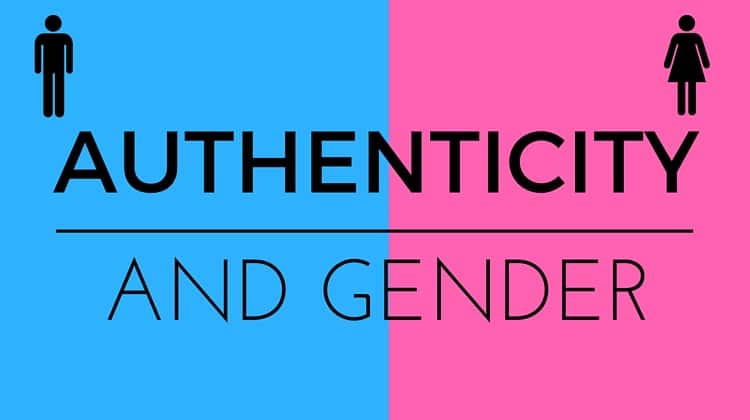
Seeing “authenticity” become the newest business buzzword has made me very happy. I write speeches for a living, and the best way for speakers to connect with an audience is to give them a glimpse of their authentic selves: Not just how they think in a business context but who they are, how the quirks of their personality got them this far, where they think those quirks may take them in the future.
Onstage or in print, authenticity gets you noticed. It gets your message remembered. Think of the leaders you respect—the ones you would follow into the proverbial trenches, no matter what. It’s a safe bet you feel connected to these people in some way that transcends business. That’s the power of authenticity, right there.
I’ve had male and female executives push back when I ask for their personal stories, but I think they do it for different reasons. Women often understand authenticity on a more visceral level, but may believe that sharing personal stories will diminish their stature as a leader.
Yes, that’s a stereotype, but there’s some data behind it. Deloitte’s 2013 research report “Uncovering Talent: A new model for inclusion” found that more than six in ten employees report covering some aspect of their authentic selves at work. Two-thirds of the working women surveyed reported covering. And—this was the eye-opener for me—even straight white men felt they needed to hide some aspect of their authenticity. Some 45% of that group reported covering.
Men may worry less often than women about authenticity tarnishing their reputations as leaders, but I think they see the “authenticity” thing as a soft skill—a component of emotional intelligence, which it surely is. And sometimes soft skills are a harder sell for men—see the literary scuffle sparked by Adam Grant’s recent op-ed in The New York Times and researcher Brené Brown’s response to it.
Soft skills may be an even harder sell for a female speechwriter working, as I most often do, with male clients. It takes a while, sometimes several projects, before my new clients trust that I’m offering sound business advice when I urge them to speak authentically.
Often the tipping point will be a question from the audience or an email after the event. I remember one client telling me in amazement about how people had crowded the podium after he spoke. He’d wanted to spout a series of platitudes; I urged him to talk about how he really felt (frustrated) and what kind of change he wanted to see. Imagine how refreshing his honesty felt to the audience. It was pretty refreshing for him, too, not to have to pretend his industry was all sunshine and roses. He never asked me for an inauthentic speech again.
Social proof also helps—other men in the business world who’ve built their reputations on authenticity. Warren Buffett is a master at it. His personality has attracted millions of followers and thousands of investors, supporting his personal brand and (what matters much more to him) his company’s success. Read through any of his annual reports and you’ll hear his voice loud and clear.
Every client wants to talk about triumphs. Audience members may aspire to triumph someday, but today they’ll connect more to the failures that surely preceded the speaker’s success. Leaders are not born that way—not since Athena sprang fully formed from the head of Zeus—they are forged, through trial and error, heartbreak and joy. (Or, if my clients absolutely insist, “challenges” and “opportunities.”)
Authenticity isn’t a male or a female quality; it’s a human quality. Don’t be afraid to show it.
About the Author
Elaine Bennett is a speechwriter and owner of Bennett Ink LLC. She has written speeches for CEOs of Fortune 500 companies from Bankers Trust to Deloitte, developing specialties in financial services, ethics, and diversity. She has won awards for her speech writing and annual report writing.